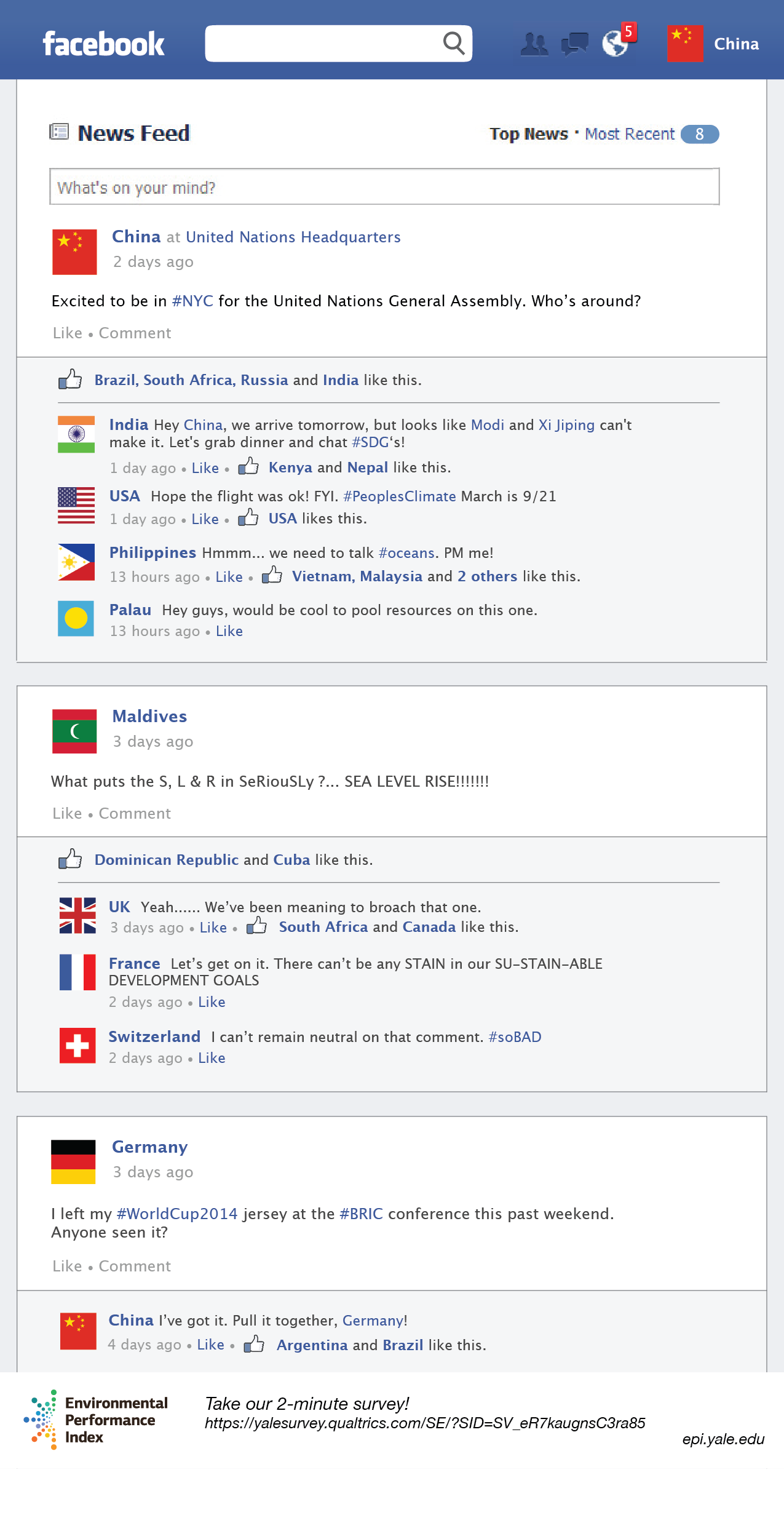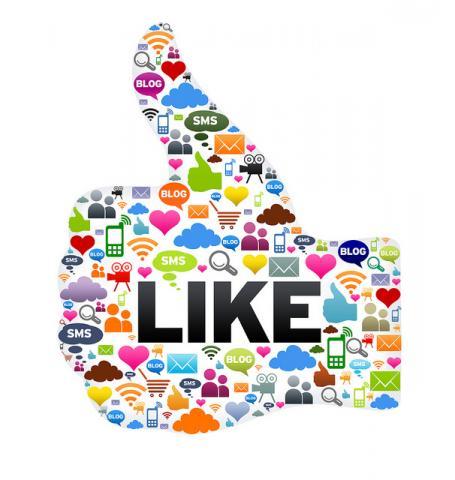
This post was co-authored with Alisa Zomer, Research Fellow at the Yale Center for Environmental Law & Policy.
Leaders from around the world will gather at the United Nations this month to tackle some of our most complex challenges - from climate change, to sustainable development, to the future of cities. Though some skepticism surrounds the efficacy of international organizations like the UN on these issues, the meetings are important networking opportunities for countries. To better understand how countries interact, we are conducting a survey to map their 'social networks.' (Hit the "Like' image below to take the survey).
Why we 'Like'
We often look to our friends, family, and neighbors for social cues on how to act, what to buy, and even who to follow. These socials norms form the basis of community and often influence individual behavior more strongly than the hard laws that govern society. The social norms of a community can provoke different pathways - sometimes inspiring conformity and other times fostering competition. 
Consider the recent "Ice Bucket Challenge," which gained rapid popularity and generated a spectrum of reactions across the globe. John Deighton, professor at Harvard Business School, suggests the Challenge's success is due to social networks and social media, which afford a platform for people to emulate their peers while building personal social capital as a "do-gooder." Another example of positive social pressure is O-Power, a company that uses behavioral science to reduce energy use in communities. O-Power provides community members information about their neighbors' energy use and costs, promoting friendly competition around energy efficiency. Understanding how people view peers and competitors is important in influencing behavior.
This is also true at the national level, where countries look to one another's policy successes and innovations. For example, the spread of laws and mechanisms around human rights and freedom of information demonstrates another way countries learn from peers through the adoption and diffusion of hard and soft laws. How countries learn from one another raises important questions for environmental performance:
How do norms influence environmental performance among countries? How can peer relationships promote a "race to the top" on key environmental issues, such as air pollution, deteriorating fisheries, and climate change?
Spread the 'Like'
To answer these questions, Yale's Environmental Performance Index (EPI) team is conducting a survey to see which countries people perceive as comparable to their own on issues of policy direction, economic models, and/or institutional reform. Using this data, we hope to reveal "social" relationships beyond traditional country groupings by GDP or geography.
Within the United Nations Climate talks, countries are often aligned in negotiation blocs. Brazil, South Africa, India, and China - all major emerging economies - comprise the BASIC group; small-island states have their own bloc called AOSIS, or Alliance of Small Island States; and, the Like-Minded Developing Countries is made up of a diverse group of developing nations. Ultimately, the goal of the survey is to harness the power of behavioral norms to elevate environmental issues on the global policy agenda and improve the substance and ambition of environmental performance.
Do you think your country is a leader in policy development? What countries are similar to yours? Please take a minute to fill out this survey and add to a growing dataset of perspectives from around the globe.